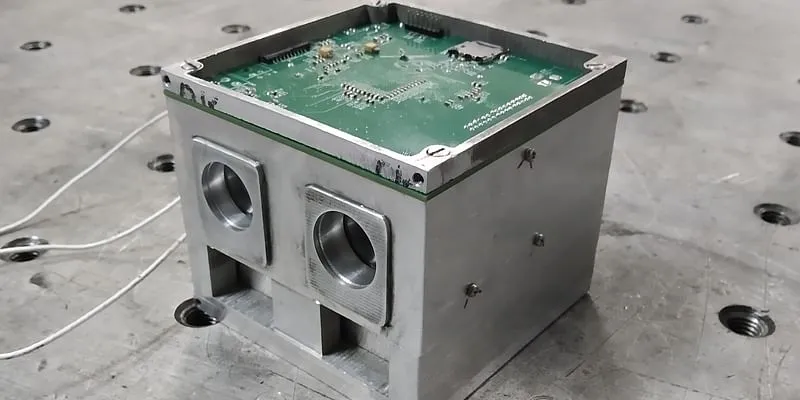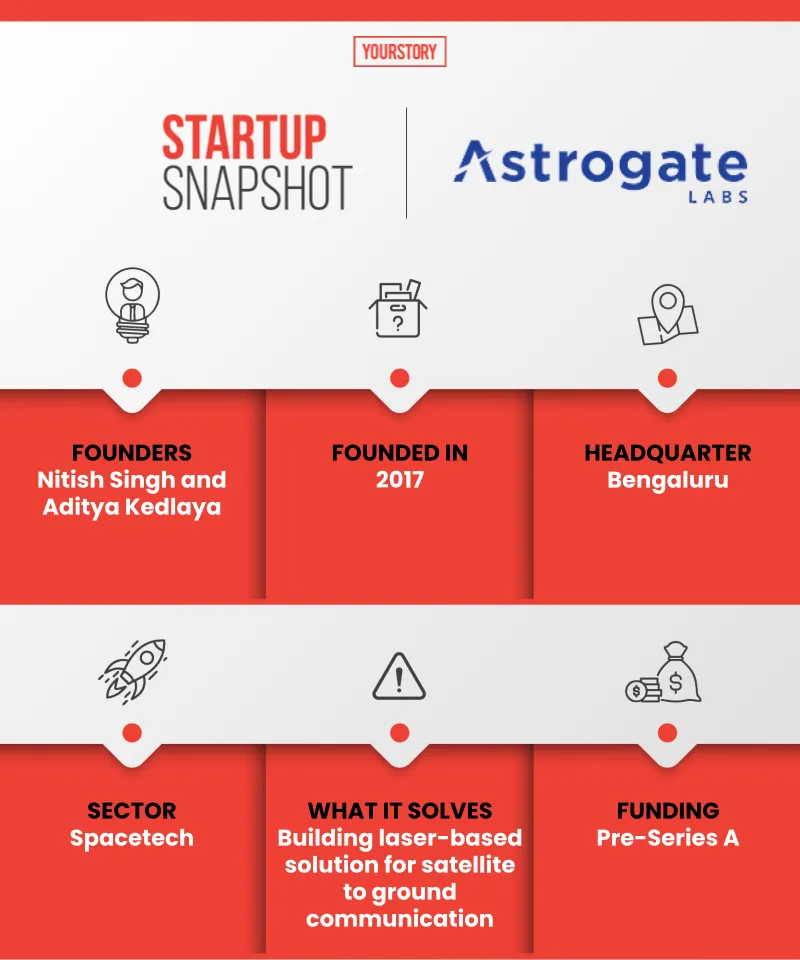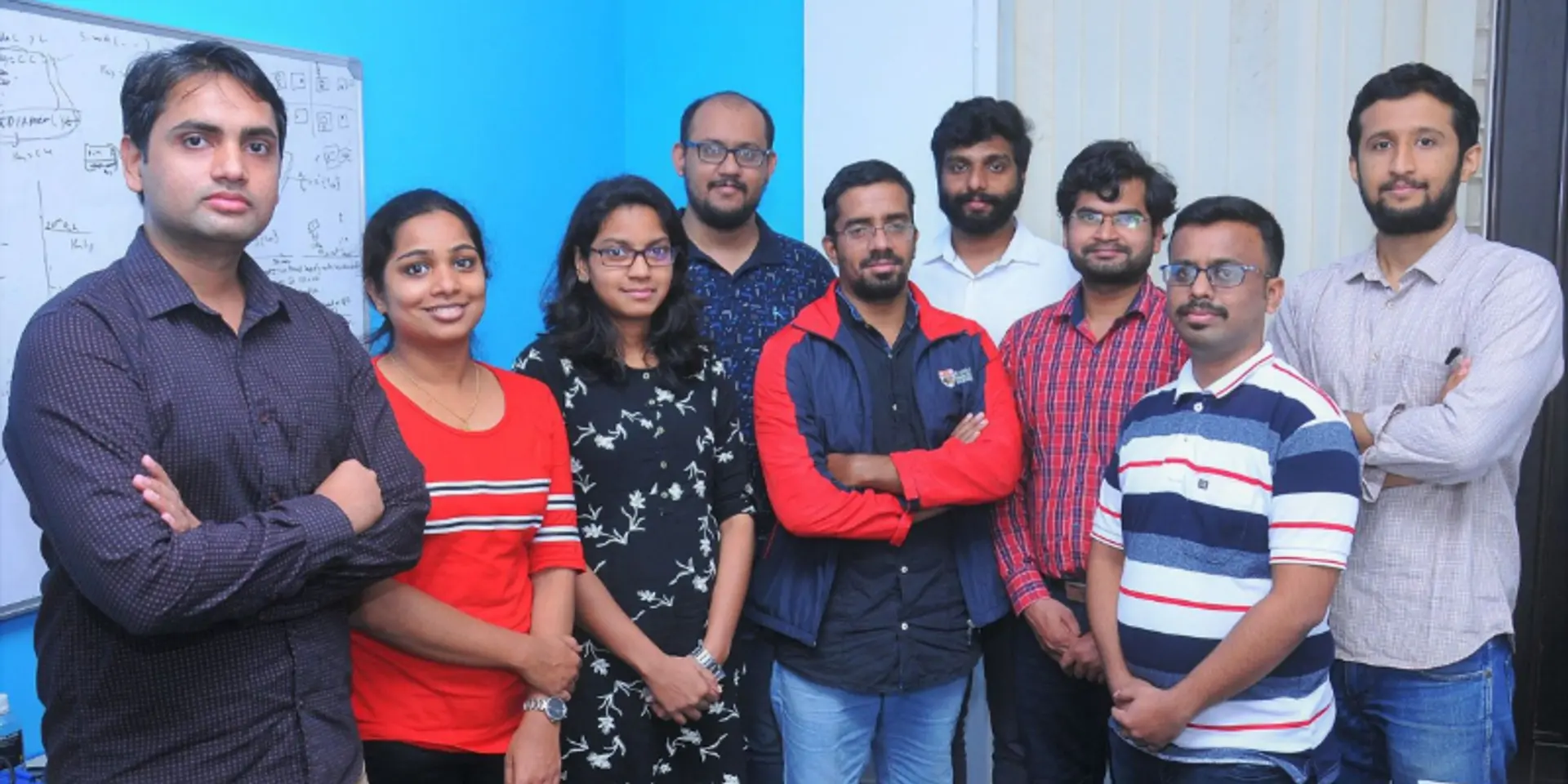How this spacetech startup is looking to disrupt small satellite communication market through its laser communication solution
Founded in 2017, Astrogate Labs is developing smallsat terminals and optical ground networks for ensuring faster and better satellite communication.
Satellites give us a wealth of data and information about Earth and space. They monitor the environment, provide information about defence and security, and help in asset tracking as well. But have you ever wondered how these satellites work?
The satellite communication begins from the Earth station, which transmits and receives signals from satellites in the form of high-frequency signals.
Bengaluru-based is working to ensure high-speed communications for smallsats. Founded in 2017 by IIT alumnus and former Team Indus engineers Nitish Singh and Aditya Kedlaya, the startup is developing smallsat terminals and optical ground networks for satellite communication.

Nitish Singh, Co-founder and CEO, Astrogate Labs
[Image Credit: Astrogate Labs]
Speaking to YourStory, Nitish explains that with the increasing number of satellites, the data which is being sent and processed will also increase in the coming years. This will increase the demand for satellite communication infrastructure.
Nitish adds that currently RF (radio-frequency) protocols are widely used for inter-satellite as well as satellite-to-ground communications. However, it is an expensive solution and is also limiting in terms of bandwidth.
Thus, Astrogate is looking to disrupt the small satellite communication market through its laser communication solution.
Astrogate Labs, incubated at Innovation & Collaboration Centre, Australia, was launched to address the need for communication infrastructure.
Satellite-to-ground communication solutions
Astrogate is aimed at building an entire chain of optical communication systems to address the problem of high-speed communication in space.
The startup is developing smallsat optical terminals and a network of optical ground terminals. It is also developing a full-stack laser communication solution for small satellites.
Nitish says that smallsat operators can integrate Astrogate’s optical terminal and subscribe to the ground communication plan for a full turn-key solution.
“Laser technology solutions were mainly incorporated in bigger sized satellites earlier due to their size, while smallsats mainly incorporate RF tools. However, laser technology can ensure more bandwidth of data transmission at a lower price. Therefore, Astrogate is developing laser tech-based tool to be incorporated in smallsats,” he adds.

Astro-Link [Image Credit: Astrogate Labs]
The co-founder explains that Astrogate has developed its first solution, Astro-Link, which offers 1 Gbps satellite-to-ground communication. The product, with 95x95x80mm dimensions, is compatible with cubesat or nanosat. Apart from this, the communication solution is also resistant to jamming and spoofing.
“Astro-Link is our optical terminal, which will be hosted on a nanosatellite. We are currently working on our optical ground station. Our first mission is scheduled for this December,” he says.
For the launch, Astrogate has already partnered with California-based space transportation and logistics company, Momentus, to demonstrate its laser communication technology through its smallsat optical downlink terminal.
Meanwhile, its optical ground station is being set up in collaboration with the University of Tasmania, Australia and will be hosted at Ceduna Observatory site, Australia.

Illustration: YS Design
Business and plans ahead
Nitish explains that Astrogate operates by partnering with satellite developers and operators who will integrate the communication solution in their satellites.
“Small-satellite operators can buy and readily integrate Astrogate’s small-sat optical downlink terminal and subscribe to optical downlink service on Astrogate’s optical ground stations. The startup is looking towards revenue of close to $60-$70 million in the next four to five years,” he adds.
Last November, the startup raised an undisclosed amount of funding in Pre Series-A round led by Speciale Invest. Anicut Angel Fund and SuprValue.vc also co-invested as part of the round.
According to a report by PwC, the Indian space economy is valued at $7 billion, and forms two percent of the global space economy. In a bid to increase India’s share in the global space market, the central government has opened up the spacetech sector for private companies.
The new reform was announced last year to ensure cooperation between public and private players to further the sector, which will definitely see more startups and academia missions come up in this sector.
Spacetech startups such as and are working to deploy a constellation of satellites, while other players such as Cosmos and are developing launch vehicles.
Last year, during an industry event, NITI Aayog member and former Defence Research and Development Organisation (DRDO) chief VK Saraswat said small satellites would dominate the global space sector, and revealed that 7,000 small satellites are expected to be launched by 2027, with a total value of $38 billion.
Speaking about future plans, Nitish explains that the company is also working to develop inter-satellite communication solutions for the satellites to communicate with each other.
Edited by Megha Reddy








